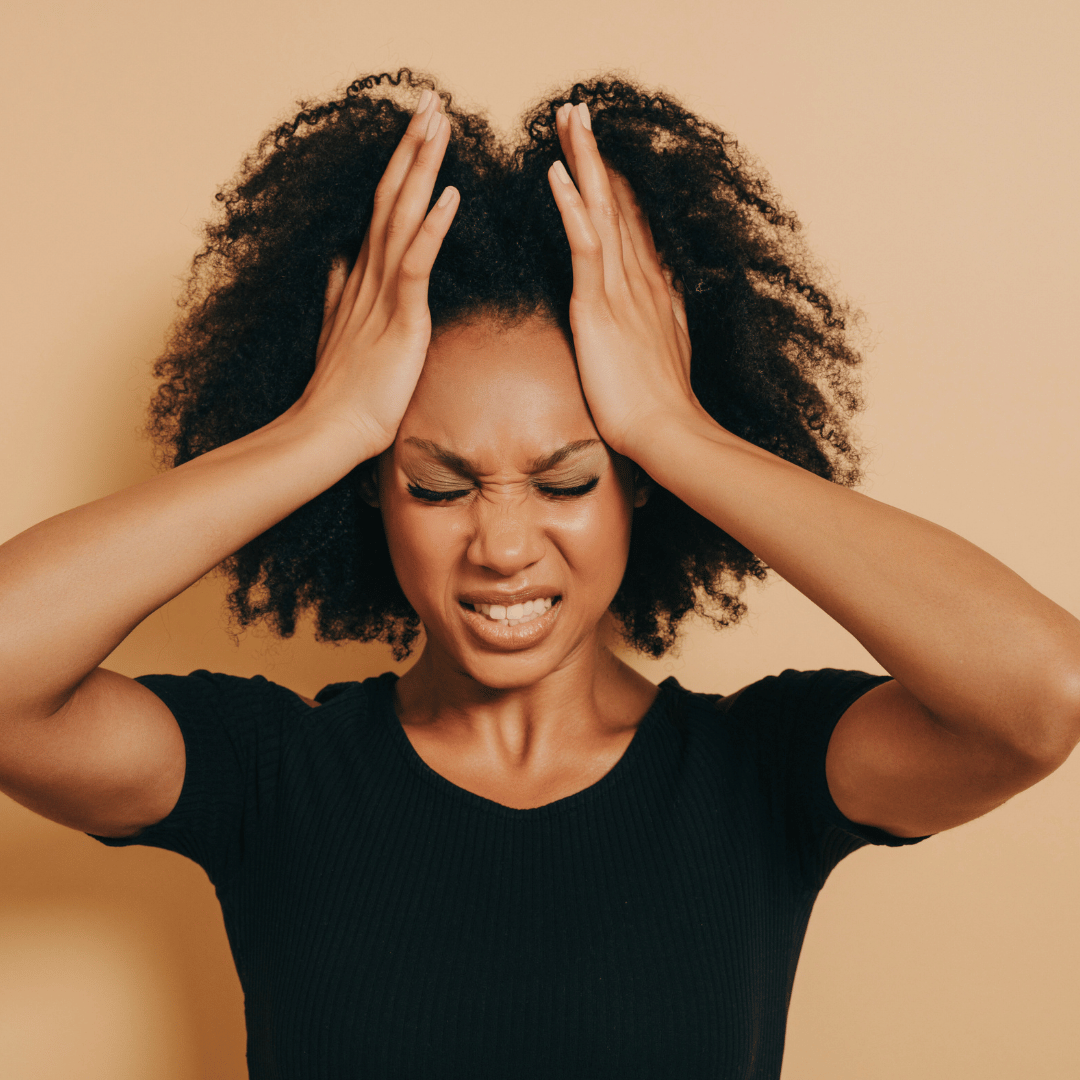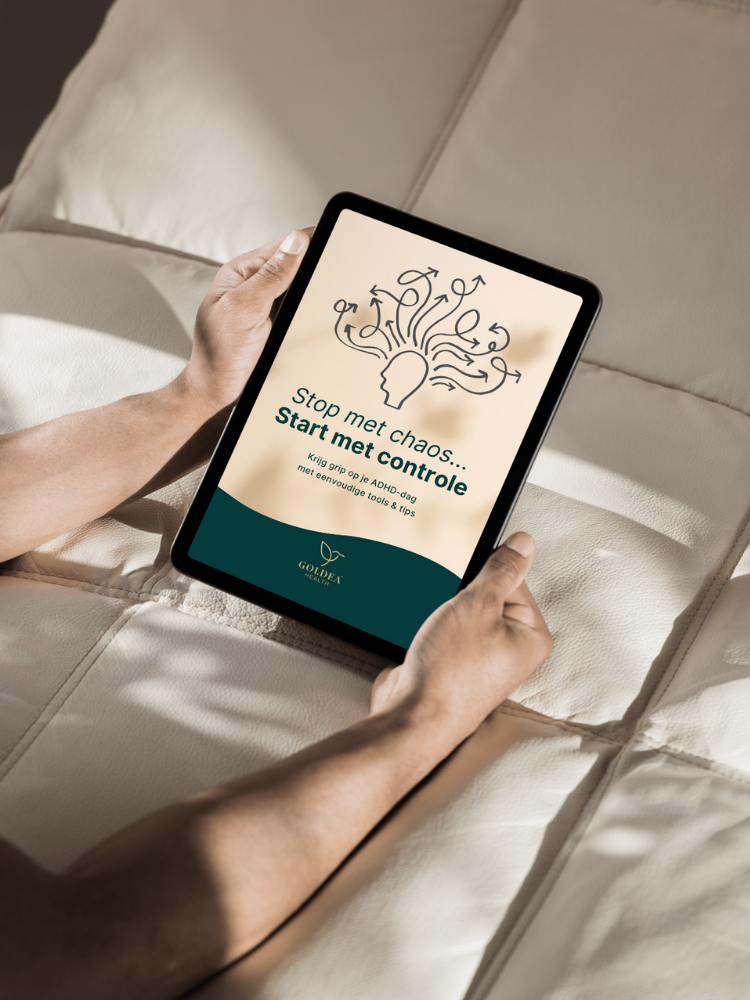Reading time: 6 minutes
Today we dive into a topic that affects many of us: panic attacks. If you've ever had a panic attack, you know how terrifying and paralyzing it can be.
But don't worry, there are ways to deal with this, quick and effective tips. We are here to help you with that.
What is a panic attack?
A panic attack is a sudden and intense experience of fear accompanied by physical symptoms such as:
- A fast heartbeat
- Sweating
- Dizziness
- To vibrate
These attacks can occur anywhere and at any time, often without any apparent cause. The difference between an anxiety attack and a panic attack is that a panic attack often begins abruptly and is short-lived, while an anxiety attack builds up more gradually and can last longer.
Symptoms of a panic attack
I already mentioned a few symptoms above, but recognizing the symptoms of a panic attack is very important to me in order to deal with it effectively. Typical symptoms include:
- A fast heartbeat
- Sweating
- Dizziness
- To vibrate
- Shortness of breath
- Nausea
- Tingling in hands and feet
If you experience these symptoms, it is important to remember that they are temporary and usually subside within 10 to 30 minutes. A great mantra is: This too shall pass. This powerful phrase reminds us that all difficult moments are temporary and will eventually pass.
What is the fastest way to get rid of a panic attack?
When a panic attack strikes, you naturally want a solution as soon as possible. It is also useful to know what you can do if you have a panic attack, or if someone in your environment experiences a panic attack.
Here are some techniques/tools you can use:
-
Breathe calmly: Focus on your breathing. Breathe in slowly (3 seconds) through your nose and breathe out slowly (6 seconds) through your mouth. This helps to lower your heart rate and calm your body.
-
Refocus: Do something that distracts you from your panic. Go outside, take a short walk, or talk to someone you trust.
-
Grounding: This means that you help yourself to focus on the present by using your senses. For example, feel the texture of an object in your hand, listen to the sounds in your environment or focus on a specific smell. For example, focus on the places on your body that are touching the chair or couch.
-
Stay calm: Panic about the panic attack itself can make the situation worse. Try to stay calm and accept what is happening.
-
Breathing Exercises: As mentioned earlier, slow, deep breaths help calm your body.
-
Talk about it: Sharing your feelings with someone you trust can be a great support.
-
Use relaxation techniques: Consider meditation, yoga, or other forms of mindfulness that can help you relax.
-
Avoid caffeine and sugar: These can make your symptoms worse. Instead, opt for calming teas such as chamomile or valerian.
A panic attack usually lasts between 10 and 30 minutes. Although these attacks are short, they can be very intense. It is important to be aware that the symptoms will subside and you will become calm again.
Difference between an anxiety attack and a panic attack
Although the terms are often used interchangeably, there are differences between an anxiety attack and a panic attack . An anxiety attack is often related to a specific stressor and can last longer, while a panic attack can occur suddenly and without an apparent trigger, but lasts for a shorter period of time.
How do I get rid of my panic attacks?
Tackling panic attacks requires a combination of self-adjustment and appropriate professional help.
Here are some steps you can take:
-
Lifestyle changes : Get enough sleep, eat healthy and exercise regularly. This helps your body and mind to better deal with stress. Read our relaxation blogs here: click here
-
Stress Management : Learn effective ways to cope with stress, such as time management, relaxation techniques, and hobbies that bring you pleasure.
-
Therapy : Cognitive behavioral therapy (CBT) has been shown to be effective in treating panic attacks. A therapist can help you recognize and change negative thinking patterns.
-
Orthomolecular medicine : At Goldea Health we believe in the power of nutrition and supplements to support your health (the whole picture).
-
Supplements: Magnesium , vitamin B12 complex , and omega-3 fatty acids can help calm your nervous system and reduce panic attacks.
What to do: someone close to you is having a panic attack
If you see someone around you having a panic attack, it is important to first understand what is going on.
Here are some ways you can help:
-
Stay calm: Your calmness can help the other person to become calmer as well.
-
Breathe with them: Help the person regulate their breathing by doing breathing exercises together.
-
Provide a distraction: Try to engage the person in a conversation or activity that will take their attention away from the panic.
-
Be there for them: Let the person know that you are there for them and that they are not alone.
Conclusion
Experiencing a panic attack can be frightening and overwhelming, but with the right techniques and support, you can learn to cope. Remember that you are not alone and that help is available. By making lifestyle changes, managing stress, and seeking professional help if necessary, you can regain control of your life. At Goldea Health, we are here to support you on your journey to a healthier, happier, panic-free life.
Do you have any questions?
Do you have any questions after reading this blog? Don’t hesitate to ask us for free and customized advice or contact us directly. Our dedicated team is ready! Are you looking for more inspiration? Feel free to visit our Instagram page or check out our other recipes, blogs for an abundance of healthy and tasty ideas. We are happy to share knowledge and tips to take your well-being to the next level!



